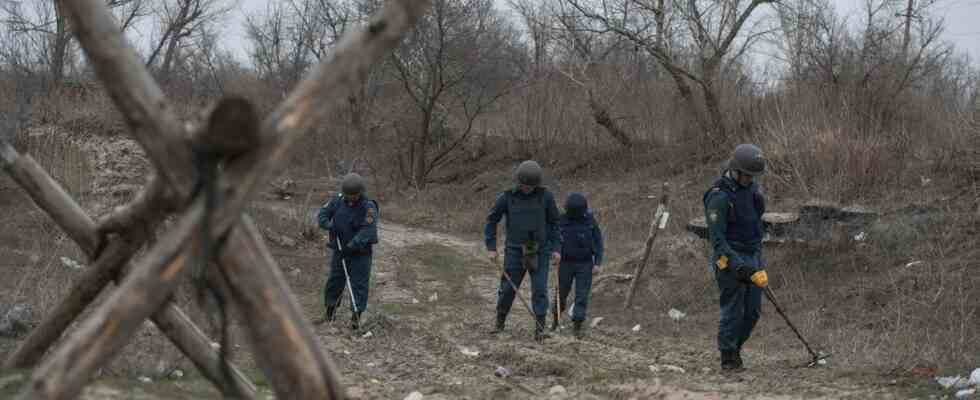False videos that would illustrate an invented conflict, Ukraine which would bombard “its own people for eight years”, Russia which would ultimately be the victim… The war in Ukraine is the source of many false information disseminated in particular on social networks. To avoid misinformation, Russian state media have been banned from broadcasting in Europe, due to their instrumentalization by the Kremlin. At the end of last week, Ifop published a survey entitled “Disinformation, conspiracy and populism in the time of the health crisis and the war in Ukraine”.
Five Russian theses were tested with the French. Result: 52% of respondents believe that at least one of them is true. The most permeable to false information studied in this survey are the voters of Jean-Luc Mélenchon and Eric Zemmour. For 20 minutesHugo Mercier, researcher in the cognitive studies department of the Jean Nicod Institute – a research center under the CNRS – reacts to these results and dissects the various theses.
This opinion poll, which finds that more than half of the French people polled believe in at least one Russian thesis, should it be alarming?
If the question of beliefs in the various theses studied had arisen before the war which began in Ukraine, the people polled would probably have answered the same thing. It was not the invasion that changed the opinion of the French, it was the intuitions that some people have. Intuitively, if you ignore the real information, the things put forward in this poll are plausible, even if false. And that’s why the Kremlin uses these claims.
But it should all the same be underlined that a large part of the French have grasped the correct information. For example for the first theory, according to which “the United States and the countries of the European Union encouraged Ukraine to ask for its integration within NATO so that it benefits from their protection against Russia” , two-thirds of respondents understood that this is false information. It also means that the media has been doing a good job since the start of the Russian invasion. Whatever some say, they are objective, and bring the truth to this conflict.
How can we explain the adherence to the different theories studied in the survey?
The two statements concerning the integration of Ukraine into NATO obtained 30% and 22% support. That NATO may have wished to include Ukraine can largely be believed by someone unfamiliar with history. These people may think that NATO has sought to expand eastward, as it has already. [Comme le disait l’Otan dès 2014 et comme elle l’a répété depuis le conflit, elle « n’entraîne pas des pays » à la rejoindre et affirme « respecte » le droit de chaque pays de choisir ses propres arrangements de sécurité]. For the first assertion is added the fact that the United States is involved. In France, we tend not to have a positive view of the United States, so the slightest pretext is easy to accept.
The statement that “the Russian military intervention in Ukraine is supported by Russian-speaking Ukrainians who wanted to free themselves from the persecutions they suffer from the Ukrainian authorities” is seen as true by 28% of respondents, and the statement that ” in certain regions of Ukraine, the Russian-speaking inhabitants have been the object for years of discrimination and attacks on the part of the Ukrainian authorities”, by 23%. They both relate to the persecution and discrimination of Russian-speaking Ukrainians by their own government. There are indeed these minorities in the territory, and perhaps they have not always been treated perfectly. This is what happens unfortunately very often for all minorities in all countries. The doubt is therefore sufficient for some of the respondents to consider this to be true.
A small number of French people adhere to the last statement studied by Ifop: “Ukraine is currently governed by a junta infiltrated by neo-Nazi movements”…
This is the only thesis that is really invented from scratch by Russia, and we find an acceptance rate of 10%, which is low. People who were able to answer “yes” to this statement are undoubtedly among those people who will say “yes” to all “conspiracist” theories. Sometimes even on events that never existed, if the affirmation is part of their way of thinking, they will adhere to it.
There is also a correlation between those who accept these theories and those around Covid-19. It shows that it’s more of a mentality: these people only accept things that reinforce their vision of the world. Anything that will stick to this vision, they will accept it more easily. The content and the form are always somewhat the same: “The great powers are hiding things from us, the people must be able to speak. »

